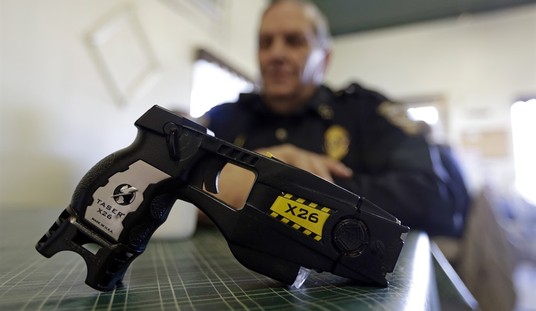On today's Bearing Arms Cam & Co FPC Action Foundation's Cody J. Wisniewski explains why the Supreme Court should step in and grant cert now to one or more cases dealing with bans on so-called assault weapons, instead of waiting for the cases to go to trial in the Fourth and Seventh Circuits.
As we discussed with Cody just last week, the Firearms Policy Coalition and Second Amendment Foundation have asked the Court to grant cert in Bianchi v. Brown; the challenge to Maryland's "assault weapons" ban that's been the subject of some severe gamesmanship on the part of the Fourth Circuit, which decided to preemptively take the case en banc even before a three-judge panel had a chance to issue a decision that was likely going to find the ban a violation of the Second Amendment. Now FPC, SAF, the Illinois State Rifle Association, and the National Association for Gun Rights are asking SCOTUS to accept their lawsuits seeking to overturn the deceptively named "Protect Illinois Communities Act", which bans both large numbers of arms defined by the legislature as "assault weapons" as well as ammunition magazines that can hold more than ten rounds.
Wisniewski says in those cases it's the Seventh Circuit Court of Appeals that's playing games with the Supreme Court's Second Amendment jurisprudence; overturning an injunction issued by a lower court on the outlandish theory that the semi-automatic rifles, shotguns, and pistols banned by the Illinois law aren't protected by the Second Amendment because they're "like" machine guns, and firearms that are "useful" in military service fall outside the scope of the right to keep and bear arms.
"The quote from the Seventh Circuit is that the arms protected by the Second Amendment do not include weapons that may be reserved for military use," Wisneiwski detailed. "They took that language in Heller that says firearms like M16s may be banned. Heller didn't affirmatively state that. It just said that they may be able to be banned. And the Seventh Circuit took that language and basically said that weapons that are used or are sufficient for use by militaries are not protected under the text of the Second Amendment."
Wisniewski says that creates two problems.
"First, it conflates the textual analysis with the historical analysis. The first thing you look to under Heller and Bruen is the text of the Second Amendment; what did those words mean when they were ratified in 1791."
"All bearable arms are protected by the Second Amendment," Wisniewski asserts. "The Supreme Court has already held that. That's not something the Seventh Circuit needs to go back and look at again."
The second problem, according to Wisniewski, is that it's absurd to think that the Second Amendment, which was meant in part to ensure that the body of the people who comprised the militia that was necessary for the security of a free state had access to arms, would have prohibited them from keeping or bearing arms that were suitable or sufficient for use by the military.
"If you remove all weapons that are useful in any military context, how do you square that with the idea that there was a protected militia that has access to effective means of self and national defense? So, this conflation and the extraction of these so-called military arms from the Second Amendment is a huge problem moving forward."
It's also an area of broad disagreement among lower courts, which offers the Supreme Court another reason to involve itself now instead of waiting until one or more of these cases is decided at trial. Some judges have concluded that the only arms protected by the Second Amendment are those most useful in self-defense, while others have said that only arms that are commonly used in self-defense are protected, even though the Court held in Heller that "The Second Amendment protects an individual right to possess a firearm unconnected with service in a militia, and to use that arm for traditionally lawful purposes, such as self-defense within the home."
"Such as", not "solely for", which is how some judges have decided to rewrite the Heller decision to their liking. U.S. District Court Judge Janet Bond Arterton, for example, denied an injunction against Connecticut's "assault weapons" ban by declaring the "ownership of assault weapons and LCMs is not protected by the Second Amendment" because the plaintiffs "have not demonstrated that the specific assault weapons and LCMs in the Challenged Statutes are commonly sought out, purchased, and used for self-defense,” adding that, “in the absence of persuasive evidence that the assault weapons or LCMs listed in the statutes are commonly used or are particularly suitable for self-defense, Plaintiffs have failed to carry their burden.”
Bond's decision is another great example of the willful misreading of Heller and Bruen that Wisneiswki talks about on today's program. Not only did she artificially limit the scope of the Second Amendment to individual self-defense, she put the burden on the plaintiffs to prove that they're commonly used for that purpose when the "text, history, and tradition" test spelled out by the Supreme Court demands that the burden is on the state to show that their modern-day gun laws comport with the text of the Second Amendment and the national tradition of the keeping and bearing arms. Bans on large classes of firearms rest squarely outside that tradition, but even after Bruen there are far too many judges determined to treat the Second Amendment as a second-class right... or worse yet, no right at all.
Wisniewski says the justices on the Supreme Court should consider these cert petitions in conference in early spring, and he's hopeful that if they grant cert to one or more of the cases oral arguments will take place this fall. Hopefully, the arguments presented to the Court in these cases prove compelling enough to get at least four justices to decide the time is now ripe for them to step in and settle this debate, because while we wait there are more Democrat-controlled states that are trying to impose their own "assault weapon" bans, and the rights of millions of lawful gun owners hang in the balance.
I appreciate Cody joining me on today's show for a fascinating conversation, and I'd encourage you to check out the entire discussion in the video window below. In addition to the latest court filings, we also get into why he decided to specialize in Second Amendment litigation, and he offers a revealing look at how California's gun control regime is helping to create Second Amendment activists like himself.










Join the conversation as a VIP Member